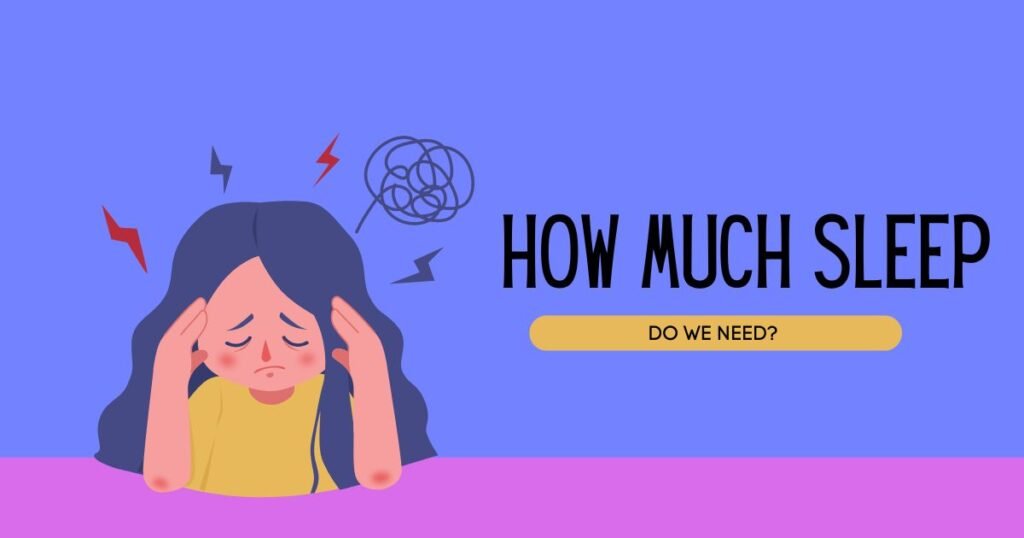Sleep is like food for the brain. Just like we need food to keep our bodies strong, we need sleep to keep our minds healthy and happy. It’s easy to think that sleep is just about resting, but it plays a big role in keeping our mental health in check. In this blog, we’ll talk about why sleep is so important and how it helps us stay mentally strong.
Table of Contents
Why Is Sleep Important for Mental Health?
When we sleep, our brain gets a chance to rest and recharge. It’s not just about closing our eyes; our brain does important work during this time. Here’s how sleep helps our mental health:
- Helps Our Brain Process Feelings
During the day, we feel many emotions—happiness, sadness, anger, excitement. When we sleep, our brain goes through all of these emotions and helps us understand them better. This is why a good night’s sleep can help us feel calmer and more in control of our feelings. - Reduces Stress
If we don’t get enough sleep, we often feel tired and grumpy. Lack of sleep makes it harder for us to handle stress. On the other hand, when we sleep well, we wake up feeling refreshed and ready to face challenges more calmly. - Improves Focus and Thinking
Have you ever felt foggy or had trouble paying attention after a bad night’s sleep? That’s because sleep helps our brain stay sharp. When we’re well-rested, it’s easier to concentrate, remember things, and make decisions. - Supports Positive Mood
Good sleep helps us stay in a good mood. If we don’t get enough rest, we might feel more irritated, sad, or anxious. Over time, poor sleep can lead to serious mental health issues like depression or anxiety.
How Much Sleep Do We Need?

Different people need different amounts of sleep, but experts say that most children and teenagers need about 9 to 11 hours of sleep every night, while adults usually need 7 to 9 hours. Getting enough sleep every night helps our brain work properly and keeps our mood balanced.
What Happens When We Don’t Get Enough Sleep?
Not getting enough sleep can hurt our mental health in many ways:
- Mood Changes: Lack of sleep can make us feel sad, angry, or anxious. If it continues, it can even lead to mental health problems like depression.
- Harder to Focus: It’s tough to think clearly or focus when we’re sleep-deprived. This can affect schoolwork, work, and even daily activities.
- Increased Stress: Without enough rest, we get stressed more easily, and it becomes harder to handle tough situations.
- Weaker Immune System: Sleep also helps our body stay healthy. When we don’t sleep enough, we’re more likely to get sick, which can also impact our mental well-being.
Tips for Better Sleep
Here are some simple ways to improve sleep and keep your mental health strong:

- Stick to a Sleep Schedule: Go to bed and wake up at the same time every day, even on weekends. This helps your body develop a healthy sleep routine.
- Create a Calm Sleep Environment: Make your bedroom quiet, dark, and comfortable. Turn off screens (like phones or TVs) an hour before bed to help your brain relax.
- Avoid Caffeine Late in the Day: Drinks like coffee, tea, or soda can keep you awake if you have them too late in the day. Try to avoid them in the afternoon or evening.
- Relax Before Bed: Do something calming before bed, like reading a book or taking a warm bath. This helps your brain wind down.
- Get Regular Exercise: Physical activity during the day can help you sleep better at night. Just don’t exercise too close to bedtime, as it can keep you awake.
Conclusion
Sleep is essential for keeping our minds and bodies in balance. When we get enough rest, we can handle stress better, focus more easily, and feel happier. On the other hand, lack of sleep can lead to mood swings, stress, and even mental health problems over time. By developing good sleep habits, we can ensure that our brains stay healthy and our mental health remains strong.
So, the next time you feel tired, remember: sleep isn’t just about rest—it’s about taking care of your mind and helping you stay at your best!
FAQs for The Role of Sleep in Maintaining Optimal Mental Health
Why is sleep important for mental health?
Sleep helps the brain process emotions, reduces stress, improves focus, and supports a positive mood, all of which are vital for maintaining good mental health.
How much sleep do I need for good mental health?
Children and teenagers typically need 9 to 11 hours of sleep, while adults need 7 to 9 hours each night to maintain optimal mental health.
What happens if I don’t get enough sleep?
Lack of sleep can lead to mood changes like irritability, anxiety, and even depression. It can also make it harder to focus, increase stress, and weaken the immune system.
How does sleep affect stress?
When you don’t get enough sleep, your ability to handle stress decreases, making it more difficult to stay calm in challenging situations.
What are some tips for better sleep?
Stick to a sleep schedule, create a calm sleep environment, avoid caffeine late in the day, relax before bed, and get regular exercise.

